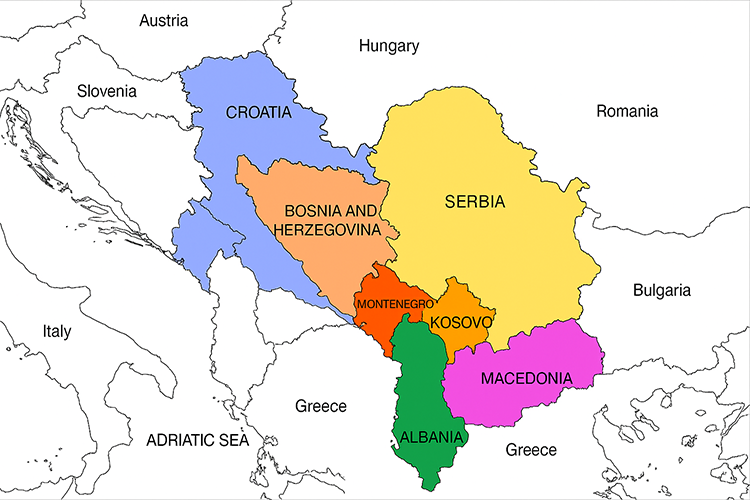2025-06-05
markets

The European Bank for Reconstruction and Development (EBRD) has announced several new initiatives across Southeast Europe, strengthening its focus on sustainable investment, private sector development, and green transitions in line with European Union objectives. New Five-Year Strategy for Bulgaria The EBRD has approved a new country strategy for Bulgaria, guiding its activities through 2030. The strategy will prioritise accelerating the green transition, fostering innovation and competitiveness, and supporting economic resilience and regional integration. These focus areas closely align with Bulgaria’s national priorities and EU commitments. With more than €4.7 billion invested in Bulgaria to date, the EBRD remains committed to promoting sustainable infrastructure, private sector growth, and inclusive development. In 2024 alone, EBRD investment in Bulgaria more than doubled to €272 million across 20 projects, over 90 per cent of which supported green transition initiatives. All investments during this period targeted private sector development. Green Finance for SMEs in Serbia In Serbia, the EBRD, in partnership with the EU, is providing up to €15 million to Erste Bank under the SME Go Green programme. The funds will support small and medium-sized enterprises (SMEs) investing in energy- and resource-efficient technologies, with a focus on agriculture, agribusiness, and women-led businesses. Participating SMEs will also benefit from EU-funded technical assistance and grant incentives—10 per cent of the loan amount, rising to 15 per cent for renewable energy and agribusiness projects. The programme aims to enhance SME productivity, sustainability, and competitiveness by aligning operations with EU climate standards. The EBRD has so far invested more than €10 billion in Serbia through 376 projects, with a strong emphasis on the private sector, green energy, and infrastructure development. Launch of InvestEU Programme in Croatia The EBRD has launched the InvestEU Guarantee Facility in Croatia, making it the first country in the financial sector to join the initiative. InvestEU supports strategic investments in sustainable infrastructure, innovation, digitalisation, SMEs, and social sectors by providing risk-sharing guarantees to local financial institutions. Through InvestEU, the EBRD will collaborate with Croatian banks to improve access to finance, especially for green projects like energy efficiency upgrades, renewable energy development, and sustainable transport. The programme is designed to reduce collateral requirements and extend credit opportunities for both businesses and households. Zagrebačka banka (ZABA) is the first local financial institution to participate, with plans to support projects in the decarbonisation of buildings and sustainable transport sectors. The EBRD’s long-standing partnership with Croatia continues to promote private sector growth and sustainable economic development. SME Go Green Programme Expansion to Montenegro The EBRD and EU have also rolled out the SME Go Green programme in Montenegro, expanding their support for the country’s green economy transition. The programme provides local banks with credit lines for on-lending to SMEs, alongside technical assistance to support investment planning. Grant incentives funded by the EU will cover 10 per cent of the loan amount, or 15 per cent for investments in renewable energy and agribusiness. The initiative focuses on enhancing the competitiveness of SMEs by promoting energy efficiency and supporting women-led businesses. The SME Go Green programme is already active in other Western Balkans countries, with an initial regional financing target of €120 million, expected to rise to €400 million. In Montenegro, financing will be available through Crnogorska komercijalna banka (CKB) and NLB Banka Podgorica. Since joining the EBRD in 2006, Montenegro has received €943 million in investment through 99 projects, aimed at improving competitiveness, advancing the green transition, and fostering integration into regional and global markets.

